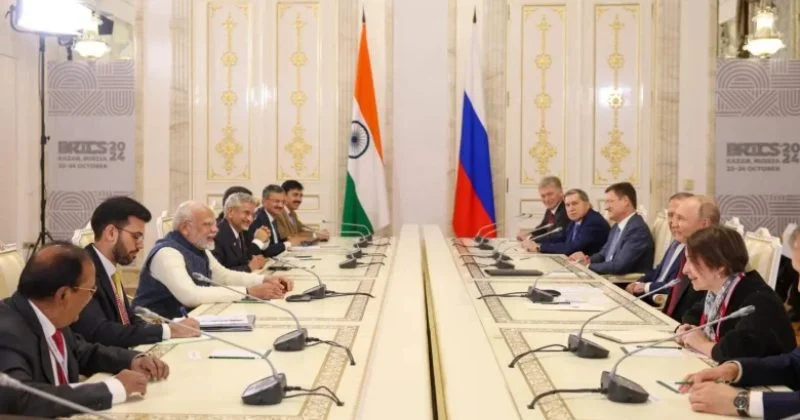
BRICS lawmakers advocate for Russian miners to sell their Bitcoin to international buyers, allowing countries to use Bitcoin and other crypto assets for imports, according to a Bloomberg terminal report shared by Matthew Siegel, the head of digital assets at VanEck.
Sanctions have significantly impacted Russia’s economy, but the emergence of crypto offers an alternative to traditional financial systems dominated by the US dollar.
Richard Wolff, a US economist and professor emeritus at the University of Massachusetts Amherst, remarked on the shifting dynamics, stating that the BRICS coalition is gaining momentum while the United States is on the decline.
During the summit, Russian President Vladimir Putin addressed the issue of the dollar being used as a political weapon, stating,
“The dollar was used as a weapon. It is true… If they don’t let us work with it, what else should we do? We should seek other alternatives.”
Putin’s comments underline the BRICS nations’ commitment to finding new avenues for economic cooperation beyond reliance on the dollar, possibly looking to crypto as an alternative.
In this context, Russia is actively working on creating a settlement and payment infrastructure that would bypass the Swift payment system. This de-dollarization initiative is expected to be one of the most concrete proposals emerging from the summit.
In a related development, Russia’s BitRiver and the Russian Direct Investment Fund (RDIF) have partnered to launch a BRICS-wide mining initiative aimed at establishing crypto and AI data centers across member nations.
This strategic collaboration is designed to enhance computing power and reduce dependence on Western sanctions and technology.
The timing of this partnership aligns with Russia’s recent crypto mining regulations, established in August 2024, which provide clear operational guidelines for miners and data center operators.
As BRICS nations work toward creating a self-sufficient, technologically advanced ecosystem, this partnership between BitRiver and RDIF signifies the coalition’s increasing influence in the crypto space.


























